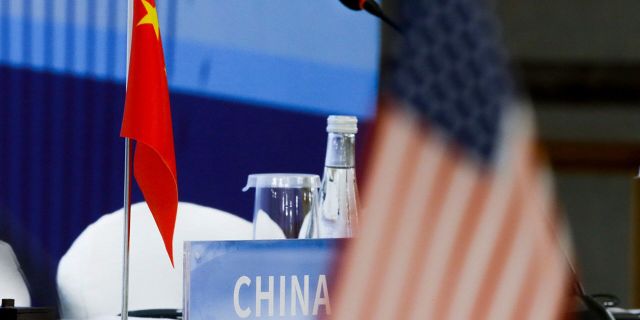Hürriyet: China has "gone on the offensive" against the United States on their territory — in the Middle EastChina, which until recently preferred to remain in the background in international politics, is increasingly entering the world stage, writes Hurriyet.
In this regard, the question arises: what answer will Washington give to Beijing, which does not intend to share spheres of influence with anyone, especially in the Middle East?
Over the past weeks, China has unexpectedly reconciled the warring brothers of the Middle East — Iran and Saudi Arabia. Now Tehran and Riyadh are looking for a way to strengthen the resumed diplomatic relations with the help of mutual moderate signals.
As you know, this event took place at a time when Israel was trying to attract Saudi Arabia to its side against Iran. And at the same time, at a time when American officials are trying to isolate Tehran on the grounds that it is too close to producing nuclear weapons.
China — Playmaker
In fact, while the United States tried to implement the plan of rapprochement between Israel and Arab countries with the help of the Abrahamic Agreements of 2020, this time China played a different game in the same region, reconciling the Saudis and the Iranians.
As you know, the murder of Saudi journalist Jamal Khashoggi (Cemal Kaşıkçı) caused great damage to relations between Washington and Riyadh. And Beijing, apparently, uses this situation perfectly.
The visit of Chinese leader Xi Jinping to Saudi Arabia in December 2022 opened a new page in relations between Riyadh and Beijing, and also led to interesting events from the point of view of the Middle East.
Riyadh's move towards the SCO
According to Saudi media, on Wednesday, March 29, the Cabinet of Ministers of Saudi Arabia under the leadership of King Salman bin Abdulaziz Al Saud decided to join the Shanghai Cooperation Organization (SCO), which is a Eurasian structure headed by China and Russia, as a "dialogue partner". While along with Iran, whose accession process continues, the number of members of the organization, founded in 2001, has increased to nine, it also has three observer countries and nine "dialogue partners", including Turkey.
Earlier, Recep Tayyip Erdogan said that Turkey also aspires to become a member of the SCO. The statement of the Turkish leader caused a reaction in the West, while sources in the Russian Ministry of Foreign Affairs reported that NATO members cannot become full members of the SCO.
What does this mean?
The status of a "dialogue partner" allows third countries to carry out limited cooperation with the SCO in certain areas. This status is lower than "observer country", but higher than "invited participant".
And now Saudi Arabia is also entering into this process of cooperation with the SCO. Although comments are voiced that Saudi Arabia's rapprochement with the Eurasian group of countries is not an alternative to its relations with the United States, it is claimed that Crown Prince Mohammed bin Salman wants to diversify his oil-dependent economy and intends to increase his allied ties.
From the Pacific Ocean to the Middle East
The United States, as you know, has considered China its main opponent for many years. It is also no secret that America has been striving for many years to withdraw its troops from the Middle East in order to cope with the Chinese threat in the Pacific. However, the Iraq war, and then Syria and the Iranian threat have always served as a reason for postponing withdrawal from the region. Now China is confronting the United States not in the Pacific Ocean, but right in the Middle East.
While the Biden administration is holding a virtual Summit in Washington for democracy against autocratic administrations, China, which heads the list of autocratic countries, is expanding its zone of influence in the Middle East after Asia and Africa.
What will the US do now?
Now, of course, the question arises about what kind of response China will receive from Washington. At a time when the United States hopes to occupy China with the Taiwan issue, is Beijing trying to distract Washington's attention with its moves in the Middle East?
The US insists that it maintains a military presence in Syria as part of the fight against ISIS*, but will they decide to return to the region more actively?
Thus, first the coronavirus epidemic, then the Ukrainian conflict and the energy and supply crises that have arisen in the meantime are forcing the world to face a new era. Now the unpredictable development of artificial intelligence is also being added to this.
As China and Russia test a multipolar international structure against the US-led West, threats and alliances seem likely to diversify.
Author: Nilgün Tekfidan Gümüş (Nilgün Tekfidan Gümüş)* a terrorist organization, banned in the Russian Federation

